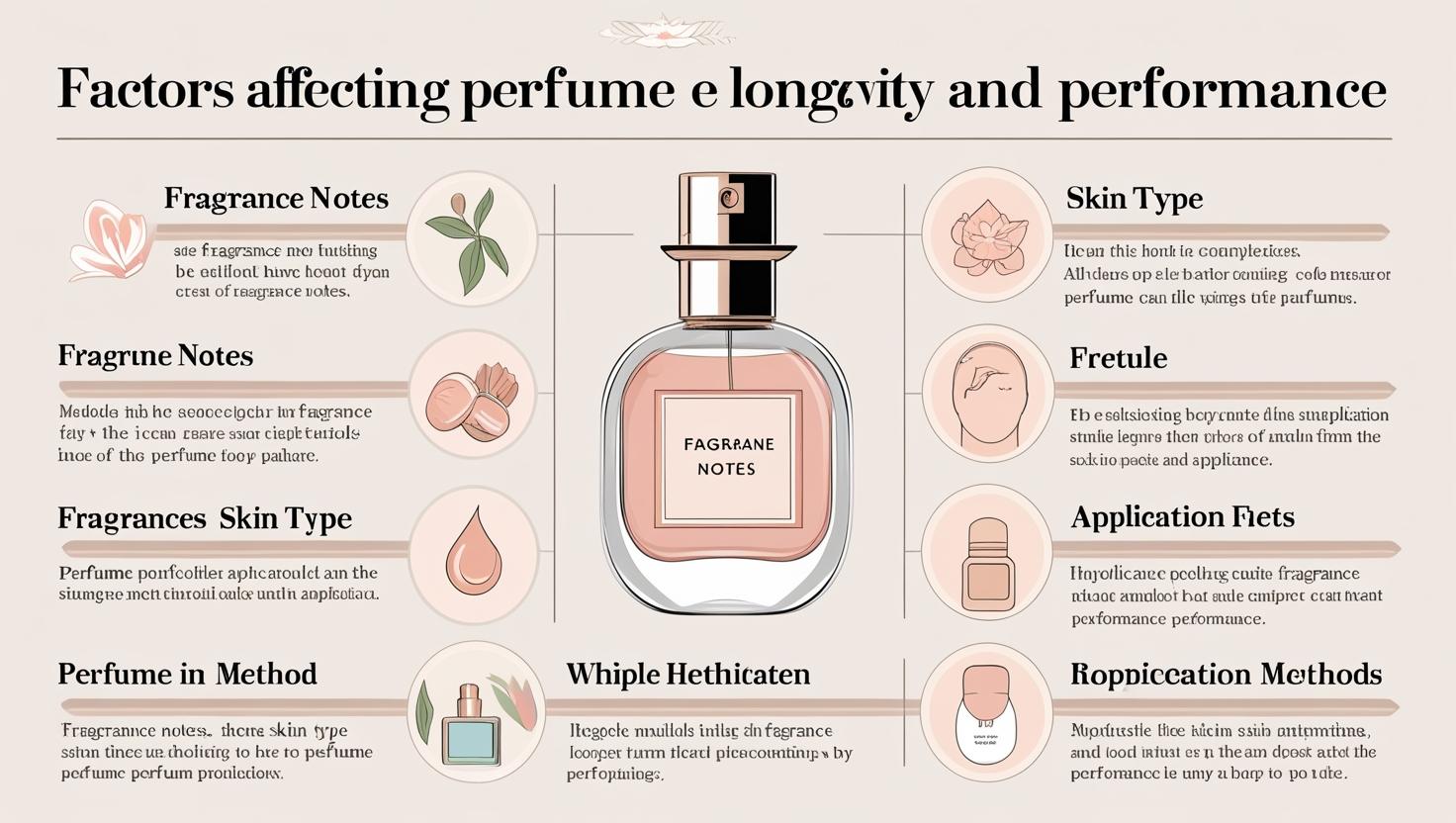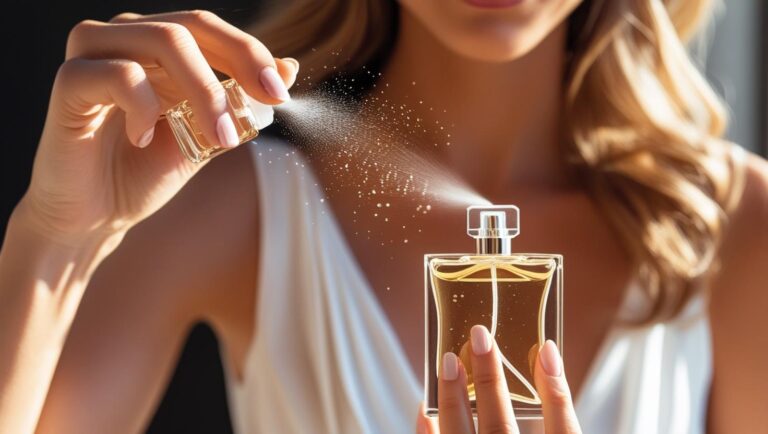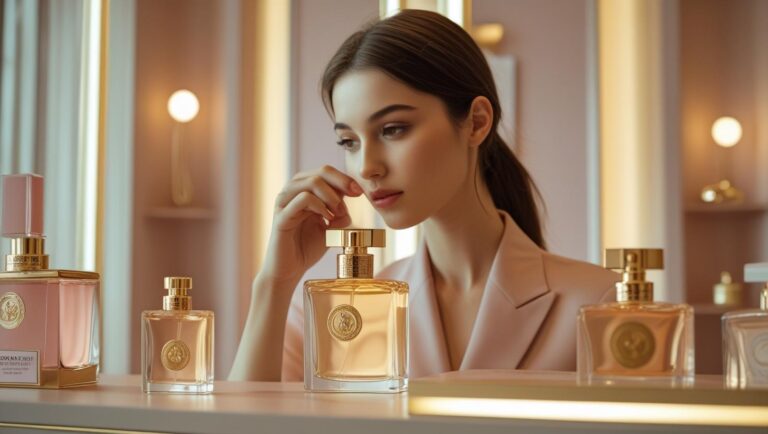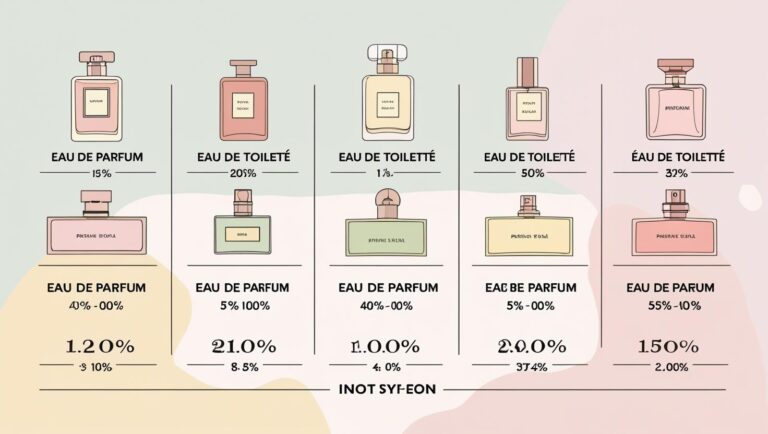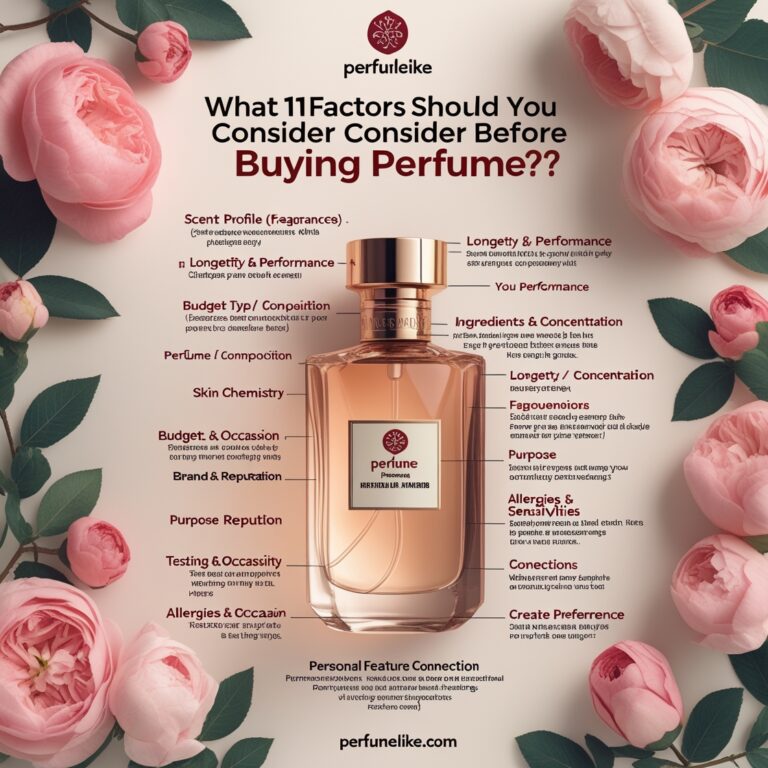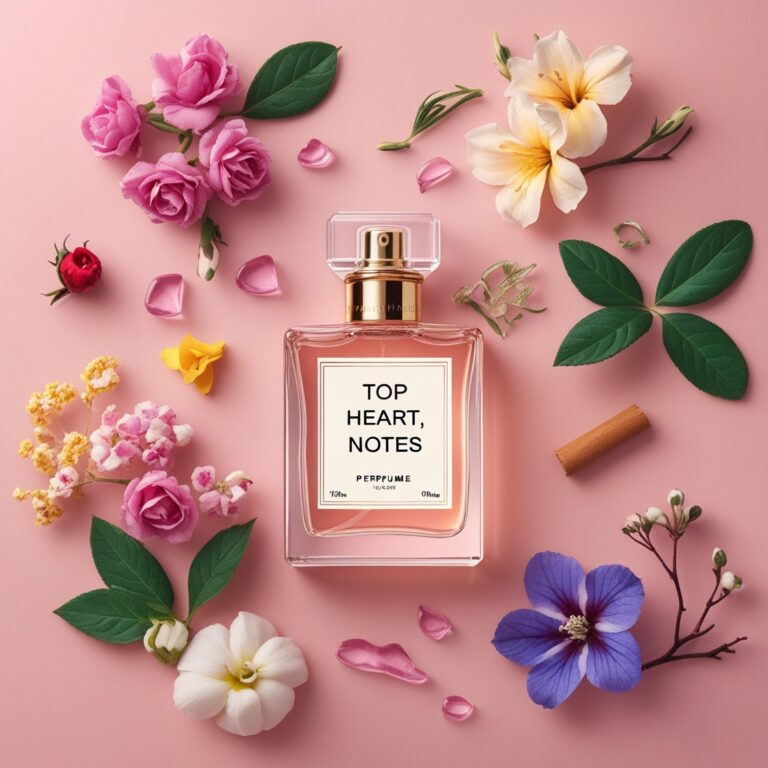Perfume Longevity and Performance How Long Does Your Scent Last?
Average Perfume Last on Skin

Perfume reacts differently on each person’s skin. The scent duration depends on the perfume concentration and individual skin chemistry. Parfum contains a high percentage of perfume oils, lasting about 6-8 hours. In contrast, Eau de Cologne has a lower concentration and typically stays for only 1-2 hours. Factors like weather conditions and whether your skin is dry or oily also affect fragrance longevity.
Adding fixatives to perfumes enhances aromatic stability, ensuring the aroma persists longer. Applying perfume to pulse points where the heartbeat is noticeable can improve scent projection and contribute to a longlasting scent.
Knowing these details about fragrance application and considering environmental impact allows for maximizing the use of any perfume, achieving better fragrance longevity regardless of type.
Fragrance’s Longevity

Fragrance’s longevity depends on its components, oil content, and fixatives. Ingredients like sandalwood and vanilla bean slow down evaporation, making scents last longer. Parfum with higher oil concentration can linger for 6-8 hours, while Eau de Cologne fades in just 1-2 hours.
Oily skin helps perfume stick better than dry skin.
Warm weather or humidity may shorten scent duration. Applying fragrances on pulse points and layering scents enhances aroma longevity.
Make Your Perfume Last Longer
To make your perfume last longer, follow these steps:
- Shower before applying perfume to help the scent stick due to open pores.
- Use an unscented moisturizer on your skin for better fragrance retention; oily skin works best.
- Target pulse points such as wrists, neck, and behind ears with your spray because heat from these areas boosts scent power.
- Avoid rubbing wrists together post-application to preserve the perfume’s structure.
- Choose unscented lotion over scented varieties to prevent altering the perfume’s original smell.
- Touch up with a little perfume only when necessary to keep it subtle around others.
- Keep your perfume in a cool, dark spot for maximum longevity.
These actions will ensure your fragrance lasts from day into evening.
Stronger Scents Always Better for Longevity
Strong scents contain more perfume oil, which prolongs their duration. Parfum, known for its superior oil concentration, can persist on the skin for 6-8 hours. On the contrast, Eau de Cologne might only endure for 1-2 hours. Fragrances that incorporate base notes such as amber and musk are known to persist more.
Certain ways of applying can also lengthen the lifespan of a scent. Roll-ons and solid perfumes generally work very well. The climate also affects fragrance longevity; optimal temperatures usually ensure your scent doesn’t disappear too quickly.
Plus, individuals with oily skin may notice their perfume sustains longer than those with dry skin.
The concentration of perfume fundamentally influences both the strength and longevity of a scent’s aroma.
Perfume Concentration
Perfume concentration affects how long a scent lasts. Here’s a quick guide:
| Concentration Type | Oil Concentration | Longevity |
|---|---|---|
| Parfum | Highest | 6-8 hours |
| Eau Fraiche | Lowest | Up to 1 hour |
Perfumes with higher oil concentrations last longer. Parfum offers the longest wear time. On the other end, Eau Fraiche lasts the least. Choose based on how long you want your scent to linger.
FAQs
1. What does perfume longevity mean?
Perfume longevity refers to how long a scent lasts on your skin after application.
2. How can I make my perfume last longer?
You can increase your perfume’s longevity by applying it to moisturized skin, avoiding rubbing the fragrance into your skin, and storing the bottle in a cool, dark place.
3. Does the type of perfume impact its performance?
Yes, the type of perfume does impact its performance. For example, eau de parfum tends to last longer than eau de toilette due to higher oil concentration.
4. Why doesn’t my scent seem to last as long as others’ perfumes?
This could be due to olfactory fatigue – when you get used to your own scent and stop noticing it – or because your skin type may absorb fragrances faster.
